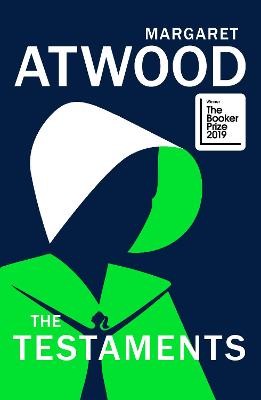Reviewed by clementine on
I run into a lot of issues here despite Atwood's technical competence. Firstly, the narrative framing of verbal testimony is not believable. People do not speak the way Atwood has written them, especially not when giving testimony in court. (That said, I think she did a great job of differentiating the voices of all three women.) Much of the novel was predictable; I saw every major twist coming, which is disappointing to say the least.
The theme of women's complicity in their own oppression is interesting, but that thought was not pushed far enough. Can Aunt Lydia be sympathetic if she has also suffered? Can she atone? It's not that I object to the idea that even people who commit acts of extreme evil are people, with complicated histories and inner lives. (Indeed, villains generally shouldn't be presented as caricatures.) I just struggle to find any sympathy towards someone who is directly responsible for mass sexual violations of women, as well as torture and death on a large scale. This is especially true when we remember that Gilead is an explicitly white supremacist society, as depicted in The Handmaid's Tale - an element that the television show does not adopt and which The Testaments certainly glosses over. (In this novel, there doesn't appear to be any sense of racial difference.) What a missed opportunity for a timely and relevant discussion of the white woman's perpetuation of racism, the idea that white women will frequently align ourselves politically with whiteness (even if it contributes to our own oppression) over womanhood. Current right-wing populism adopts overt white supremacy as a political strategy; a novel written in the current era, which is clearly trying to reconfigure the original story of The Handmaid's Tale to make sense of contemporary society (and to fit into the modern storyworld of the show), should acknowledge this. That said, Atwood is probably not the person to incorporate a nuanced critique of white supremacy into anything she writes, given that she... hasn't ever broached that topic. In the end, the reveal that Aunt Lydia is an informant working towards the fall of Gilead feels cheap. What a tidy ending - this reversal undermines the reality of oppressive regimes, making a storybook ending out of a bleak story that was originally conceived of to mirror reality. Things are rarely so satisfying as this, and this only cheapens the original message and the insistence on plausibility as an inherent goal of speculative fiction.
Much of the power in The Handmaid's Tale was its ambiguity, its refusal to give us answers. It was the story of one woman who lacked agency and knowledge, the story of minuscule modes of resistance. We didn't have answers about where Offred ended up; we didn't even know her name. (I'm not surprised the show named her June, because that is the implication of the text - but it's never made explicit.) While The Testaments leaves something to the imagination, it is richer in information and answers enough questions (either explicitly or through implication and links to the television show) that it diminishes the power of the original text. Answers are not always possible, necessary, or desirable. In the case of The Testaments, they are a liability.
Reading updates
- Started reading
- 13 September, 2019: Finished reading
- 13 September, 2019: Reviewed
